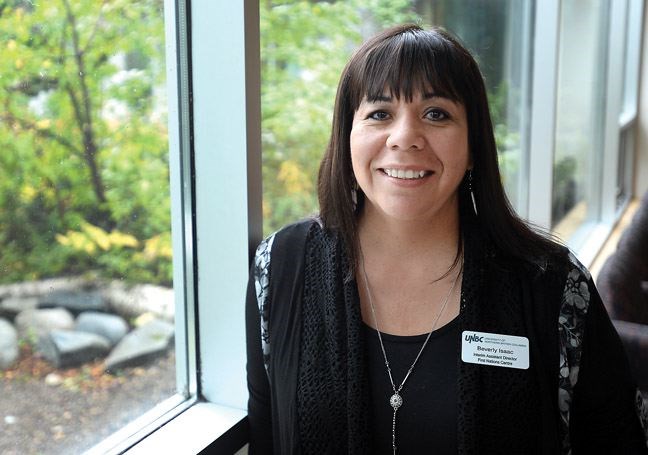The University of Northern B.C. is launching five new programs for its aboriginal students with the help of provincial funding.
The Ministry of Advanced Education, through its annual Aboriginal Service Plan program, announced Tuesday $200,000 in funding for UNBC out of a total $3.7 million handed to post-secondary institutions.
It will go towards academic coaches, a community connections coordinator, an alumni speaker series, an elders in residence program and a seven-day transition course to show high school students university life.
Those services would have been a huge help to Bev Isaac when she moved from Stellat'en First Nation near Fraser Lake for university some 10 years ago.
Even then she said the First Nation Centre was essential to her success as a student.
"Just having that support to be able to come regenerate and go back out there and get my education, it was a huge help having those supports," said Isaac, the centre's interim assistant director.
"We are so grateful to the funding because we're able to bring in these kind of programs that help students not only transition to UNBC but it helps them stay connected to their culture to their communities. It touches them personally, each program and that's what we intend to do."
When Isaac took up the role in December last year, they tried to revitalize the services by talking to students, faculty and staff about what was missing, and what was needed.
"One of the issues was having elders present," she said, adding each month a new elder will be brought in for a week stay "so that students can connect with their communities, their cultures (and) share."
UNBC residences has donated a room for the program. The first elder hasn't yet been selected but will likely be from Lheidli T'enneh out of respect for the territory where the university stands.
The community connections coordinator will work on relationships between the university and the First Nation communities in the region and the academic coaches will work at the regional campuses to help new university students with the transition.
One of the programs is targeting high school students launched last spring and was so successful it had a waitlist. The goal of the seven-day "Spring into Transitions" experiential approach to learning is to show some 30 Aboriginal students that university is attainable, Isaac said.
"I think a lot of students, especially coming from northern communities, cannot picture themselves in institutes like this," said Isaac, who herself never imagined post-secondary was possible and was the first in her family to pursue higher education.
"It's a lot for students if they're the first in their families," she said. "I think if we take away that stigma of it being too far away or too hard and we show them that it is really possible then I think we're opening a lot more eyes."
In School District 57, last year's graduation rate for aboriginal learners sat at 48.8 per cent compared to 81 per cent of non-aboriginal students.
"It's not so far off to be able to come here and go to school we have so much supports and resources within the university that anybody can come here and get an education," she said.
The funding covers a variety of costs, including professors, transportation for students and elders, travel and food, honorariums and more. At this point, they're still considered pilot projects, but Isaac hopes that will change.
"(The programs) are only possible because of the Aboriginal Service Plan funding from the government. If they're as successful as we hope they're going to be, then they become solidly funded by UNBC."



.png;w=120;h=80;mode=crop)